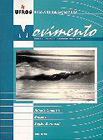Olympia: la mirada femenina sobre los juegos olímpicos de Berlín
DOI:
https://doi.org/10.22456/1982-8918.2652Abstract
In 1936, when the Olympics Games were celebrated at Berlin, Hitler put Leni Riefenstahl in charge of the film. She was a kind of an official documentary maker of the Third Reich and had already filmed The Triumph of the Will, the film about the 1st. Nazi Congress in 1934. Olympia is, in a certain way, the official movie of Berlin ’36 which is not only a document of the nazi iconography but a film made by a woman in times in which that was no usual in cinema industry. The goal of this paper is to trace some lines of interpretative analysis about the feminine look that crosses the film. A look which, articulated to other looks, functions a complement of them. All the looks finally builds up a whole set in which the first is dissolved. The methodology that I used is the cultural analysis in order to unfold the meanings that appear in the textual surface of Olympia. These meanings –some more explicit than others- saturate the text of contextual references. If Olympia shows a pleasant enjoying look who watch naked female and male bodies, not common in those times and in this genre, this gesture is addressed to both an aesthetic and ideological collocation in the film which is only possible because it is a feminine look. This is what this paper will try to demonstrate.Downloads
Downloads
Published
How to Cite
Issue
Section
License
Movimento adopts the Creative Commons Attribution 4.0 International (CC BY 4.0) for approved and published works. This means that authors:
- keep their copyrights and grant right of first publication to the journal; and
- as long as the authors’ names and Movimento’s initial publication rights are acknowledged, the authors may share (copy and redistribute the material in any medium or format) and adapt (remix, transform, and build upon the material for any purpose, even commercially).





